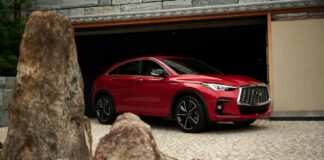BYD, the Chinese electric vehicle manufacturer, is capitalizing on a federal emissions loophole by importing significantly more vehicles than it sells in Australia. This strategy allows the company to earn valuable carbon dioxide reduction credits, according to a report by the Australian Financial Review.
Automakers that exceed their CO2 emissions targets receive credits based on how many vehicles they import, not their sales volume. These credits can be sold to other manufacturers struggling to meet emissions standards, helping companies like BYD profit from the system.
BYD has imported 50,918 vehicles through September, compared to selling 37,923 during the same period. This strategy allows BYD to earn substantial revenue through carbon credits. According to the Australian Financial Review, BYD could earn approximately $7,050 in credits for each electric Sealion 7 imported, assuming each credit sells for $50.
The loophole has allowed BYD to import excess vehicles, storing them in unconventional locations, including a temporarily closed water park south of Sydney. While BYD claims it’s simply preparing for anticipated strong demand, critics argue this is exploiting the regulatory gap.
The government is expected to address this issue as part of a 2026 review of emissions regulations. Transport Minister Catherine King’s spokesperson stated the government intends to move compliance with the New Vehicle Efficiency Standard (NVES) to the point of sale. This change aims to prevent manufacturers from gaming the system.
BYD’s sales growth of 149.8% year-to-date demonstrates the effectiveness of its strategy. While BYD claims its inventory build is necessary to meet expected demand, the government has warned that deliberately subverting the system’s operation will be treated seriously.
Key facts:
– BYD imports 50,918 vehicles but sells only 37,923 through September
– BYD earns credits based on imports, not sales
– Each imported electric vehicle could earn approximately $7,050 in credits
– BYD’s sales growth is 149.8% year-to-date
– Government plans to review emissions regulations in 2026
The situation highlights a growing tension between environmental regulations and business strategies as the Australian auto industry transitions to electric vehicles




















